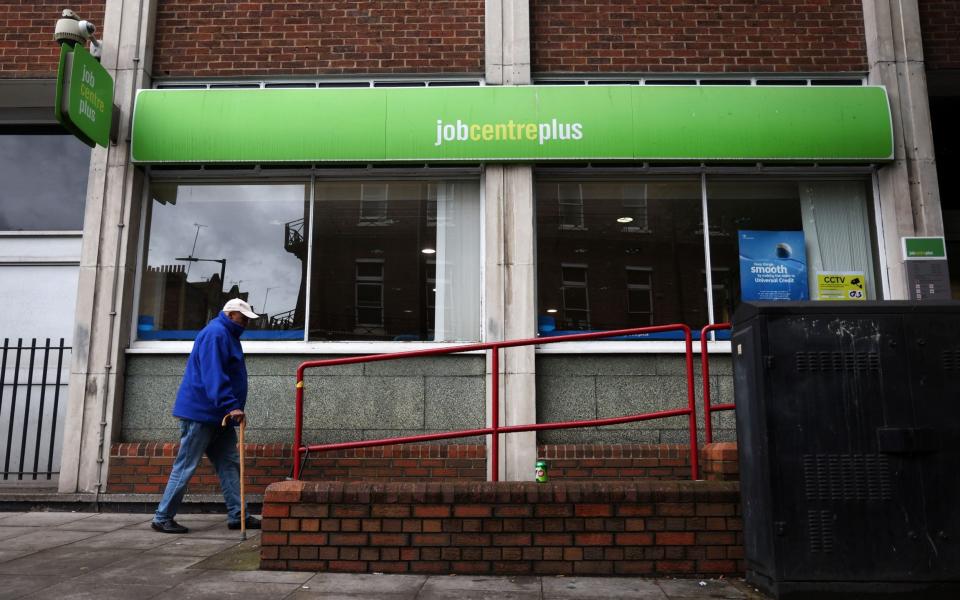Universal Credit crackdown backfires as fraud bill surges to £5.6bn

Taxpayers have been hit with a £5.6bn Universal Credit fraud bill despite a Government crackdown on criminals abusing the system.
The amount of money lost to fraud through the benefit rose by more than £700m in the financial year to April, official figures show.
It comes as ministers face calls to toughen up Universal Credit application requirements which were relaxed during the pandemic.
Last month Sir Iain Duncan Smith, the architect of Universal Credit, said there was “no question” that checks on applicants should be reimposed to tackle high levels of fraud.
The Department for Work and Pensions (DWP) has been racing to tackle high levels of fraud in the benefit since the pandemic, when a record £8.3bn was lost to fraud and error between 2020 and 2021.
Universal Credit overpayments due to fraud alone were worth £5.6bn last year, a rise of 14pc from £4.9bn between 2022 and 2023.
Fraud levels in the overall benefits system have also increased to £7.4bn in the financial year ending in 2024, up 17pc from £6.3bn in the previous year.
This included an increase in levels of fraud for Pension Credit, which sits outside of Universal Credit, from £120m to £210m over the same period.
Officials have been racing to crackdown on benefit fraud, which remains substantially more prevalent than before the pandemic.
The DWP this week announced that a 2,500-strong team will be tasked with vetting claims for Universal Credit.
The move comes as controversial legislation is set to come into force requiring banks to share some customer information with the Government to check their eligibility for the benefit.
It would enable civil servants to identify applicants with savings of more than £16,000, who cannot make a claim under current rules.
Previous efforts to curtail fraud have included retrospective checks on applicants who were granted payments during the pandemic and the restoration of most of the approximately 200 rules that were relaxed during lockdown.
However, there is growing concern among senior MPs that criminals are continuing to abuse the system, costing the taxpayer billions of pounds every year.
Sir Jacob Rees Mogg, a former cabinet minister, and Dame Meg Hillier, chair of the public accounts committee, joined calls last month for officials to reimpose all rules designed to vet applicants for Universal Credit.
A Bulgarian criminal gang were convicted last month of stealing more than £50m from taxpayers through thousands of bogus Universal Credit claims. The false claims were made between October 2016 and May 2021 in the largest benefit fraud in British history.
The DWP has so far refused to elaborate on the exact nature of the rules which have been relaxed since the pandemic, citing concerns the information could be used by fraudsters. It is understood that 31 were dropped permanently.
It is believed one is the requirement for claimants to provide a “fit note” from doctors to prove they are too unwell to work for the first seven days of an illness. Applicants are now asked simply to “declare” evidence of a medical condition.
DWP Secretary of State Mel Stride said: “We are stepping up our fight against fraudsters after stopping £18bn going into the wrong hands in 2022/23. Our work has meant that benefit fraud and error as a percentage of benefit spending – which rose to protect incomes during global challenges – has remained broadly stable, at a time fraud has been increasingly challenging.
“But we are going to bring down fraud further and faster. We are changing the law to give investigators new powers of arrest and seizure, using machine learning to detect and prevent fraud and tripling the size of our teams reviewing millions of Universal Credit claims for possible fraud or error – which is expected to save £6.6bn alone.
“We will continue to fight benefit fraud to protect the taxpayer and put fairness at the heart of our welfare system.”

 Yahoo Finance
Yahoo Finance 